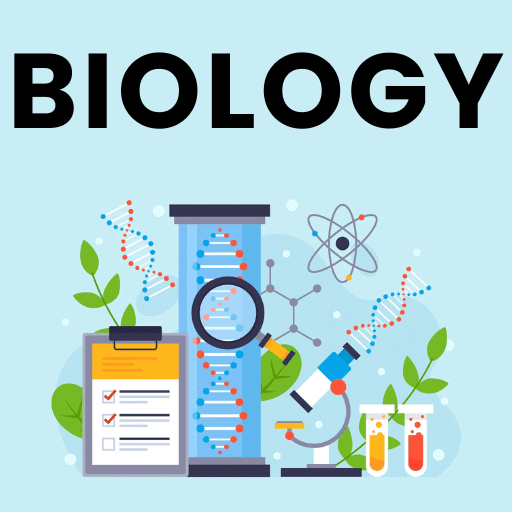6 Days Study Plan: Organisms and Population | Biology Class 12 - NEET PDF Download
Let's explore the Biology chapter called "Organisms and Population" and how it's important for the NEET exam. By studying the past years NEET questions (from 2016 to 2025), we can see that this chapter is really important in the exam. If you want to score well in NEET, you need to understand the concepts in this chapter.
Meeting Your Timetable Goals with EduRev!
The study plan for this chapter offers you a schedule to manage your time effectively for learning and practicing the chapter thoroughly. By following this plan diligently, you'll be well-prepared to tackle even the most challenging questions asked in NEET related to each chapter. EduRev makes your preparation easier and saves you time by providing comprehensive resources for each topic. These resources include chapter notes, videos, and tests for every topic and chapter.
To access these valuable resources, including documents, videos, and tests, simply click here.
Chapter Overview
This chapter covers various important topics related to ecology, populations, and their interactions. Here are the topics covered in "Organisms and Population":
- Ecology: Organisms & their Environment
- Population Interactions
- Homeostasis
- Ecology: Community & Biome
- Population Growth
- Population Attributes
- Population Interactions
- Adaptation & Habitats
Let's create a study plan to efficiently cover these topics over a span of 5 days, with an additional day dedicated solely to revision.
Recommended Tip: Review the past year's questions related to this chapter. This will provide you with insights into the types of questions typically included in the exam and the level of detail you need to study. Getting a sneak peek ahead of time can be a game-changer!
Day 1: Ecology: Organisms & their Environment
What to cover:
- Introduction to Ecology
- Organisms and their Environment
- Abiotic and Biotic Factors
- Ecological Levels of Organization
- Ecological Pyramids
- Nutrient Cycling
Study Tips:
- Start by reading the NCERT textbook for this topic.
- Take notes on key concepts and terms.
- After reading, attempt questions from the NCERT textbook.
- For a visual overview, refer to the mindmap.
Day 2: Population Interactions & Homeostasis
What to cover:
- Types of Population Interactions (Competition, Predation, Mutualism, etc.)
- Homeostasis: Mechanisms and Importance
Study Tips:
- Use EduRev's important diagrams to visualize population interactions.
- Practice questions related to these topics for better understanding.
Day 3: Ecology: Community & Biome
What to cover:
- Community Structure
- Ecological Succession
- Major Terrestrial Biomes
- Aquatic Biomes
Study Tips:
- Refer to the NCERT solutions for additional clarity.
- Create flashcards for key terms and concepts.
- Test your knowledge by taking practice quizzes.
 |
Download the notes
6 Days Study Plan: Organisms and Population
|
Download as PDF |
Day 4: Population Growth & Attributes
What to cover:
- Factors Affecting Population Growth
- Population Growth Models
- Population Attributes (Age Structure, Density, Dispersion, etc.)
Study Tips:
- Watch the video on Ecology: Community & Biome for a visual explanation.
- Solve numerical problems related to population growth models.
Day 5: Adaptation & Habitats
What to cover:
- Adaptations of Organisms to their Environment
- Types of Habitats
- Niche and Role of Species
Study Tips:
- Utilize mnemonics to remember key concepts and terms.
- Revise the entire chapter for a holistic understanding.
Day 6: Revision Day
On this day, dedicate your time to revising all the topics you've covered throughout the week. Review your notes, flashcards, and attempt practice questions again. Ensure that you understand the key concepts thoroughly.
In the NEET exam, you'll encounter questions like the ones mentioned in below links. The best way to review and get better at the topics is to solve the questions. If you find a question tricky, it's a sign that you might not fully grasp that topic. In that case, it's a good idea to revisit the topic and study it again and solve more and more questions related to it.
- NEET Previous Year Questions (2016-23): Organisms & Populations
- NCERT Based Tests
- Assertion and Reason type questions test
- Important Diagrams: Organisms and Population
- Topic Wise tests
- Case Based Questions Test
Studying "Organisms and Population" is essential for NEET, and EduRev provides valuable resources such as mindmaps, diagrams, solutions, and practice quizzes. Follow this study plan diligently, and you'll be well-prepared for this crucial chapter. For more NEET-related resources, visit the NEET Exam page.
Happy studying!
Here are all the important links and topic links for the "Organisms and Population" chapter:
Important Links:
- NEET Exam
- NEET Previous Year Questions (2016-2025): Organisms and Population
- Mindmap: Organisms and Population
- Important Diagrams: Organisms and Population
- Mnemonics: Organisms & Population
- NCERT Textbook: Organisms and Population
- NCERT Solutions: Organisms and Population
- Test: Organism & Its Environment
- Video: Ecology: Community & Biome
- Chapter: Organisms and Population
Topic Links:
- Ecology: Organisms & their Environment
- Population Interactions
- Homeostasis
- Ecology: Community & Biome
- Population Growth
- Population Attributes
- Population Interactions
- Adaptation & Habitats
Use these links to access specific resources and topics as you study "Organisms and Population" for your Class 12 Biology and NEET exam preparations.
Happy learning!
|
78 videos|280 docs|174 tests
|
FAQs on 6 Days Study Plan: Organisms and Population - Biology Class 12 - NEET
| 1. What is ecology and why is it important? |  |
| 2. What are some examples of population interactions? |  |
| 3. What is homeostasis and why is it important for populations? |  |
| 4. What is a community in ecology? |  |
| 5. What are biomes and what factors determine their characteristics? |  |






















